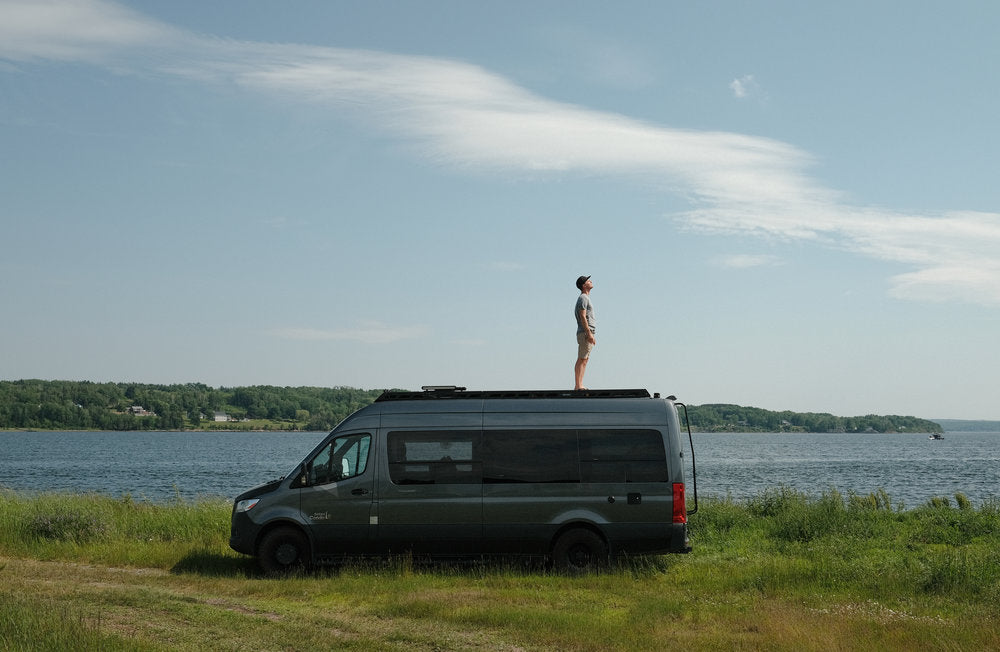Van life has always been a thing. While many still associate this way of life with the Westfalia and hippies of the 70s, we’ve seen a new wave of enthusiasm for nomadic lifestyles in recent years. But is it possible to mix eco-friendly practices with living full-time (or part-time) in a polluting vehicle? Absolutely. Go Van founder, Julien, goes as far as to say that it actually goes hand in hand.
Witness Nature
First of all, Julien believes it’s all about awareness. You just have to take a look outside parks and nature reserves to understand the impact of our consumption and actions on the environment. Living on the road and in the wilderness makes you witness the impact, and you quickly wonder how you can reduce it.
“When I have to empty my grey water tank, I actually know and see where the water is going. At home, you just don’t realize it.” -Julien, Go Van founder
That's why he quickly turned to The Unscented Company products, which are biodegradable and safe for the environment. From there, a nice complicity between the two companies started and then evolved into a bold collaboration.

Tips to Reduce Waste
There is no magic formula for this specific issue. Following awareness, the second and final step in the process is to act and reduce. At the core, space in a van is very limited which encourages to have the least possessions possible from the very beginning. In Julien’s case, every single thing you can find in his van has been recycled, coming from thrift shops in places he visited on his way. This way, each object has a double purpose, also acting as a souvenir.

Do Not Underestimate the Impact of Small Actions
Living in a van means living next to your possessions at all times. It’s therefore easy to make an extra effort. Little and simple gestures can make a difference at the end in the amount of waste generated. Having a basic set including things like a reusable straw and coffee cup are a first step towards a more responsible lifestyle.
Compensate for Gas Use
Now let's talk about the elephant in the room: it's all good to make efforts reducing waste, but what about gas consumed when driving the van? How to compensate for this polluting discharge? Julien believes the answer lies in subscribing to a greenhouse gas (GHG) compensation program. That way, you can compensate for every kilometre travelled by planting trees. For its part, Go Van gives Carbone Boréale, a local greenhouse gas compensation program paired with a UQAC research infrastructure.

Go Van: Connecting as a Mantra
People who are interested in van life do not all look the same. They are photographers, organizers, translators, craftsmen and craftswomen; so many different people with diverse profiles who continue to work in their field while embracing this alternative way of life. By engaging with their stories, Julien was inspired to found Go Van: a platform to create connections between members of the community and a way to democratize the movement.
Over the years, the project—which began as a web magazine—evolved. Now Go Van also offers a content sharing platform, an online store and is even organizing events for curious people and van life enthusiasts. Julien has also launched a book on the topic and a TV series on alternative lifestyles.




